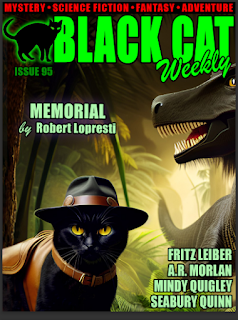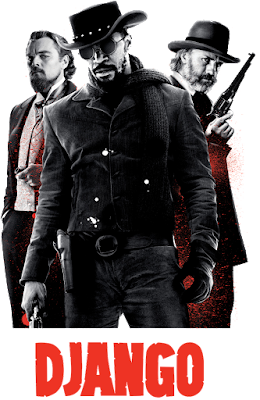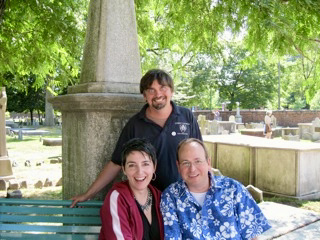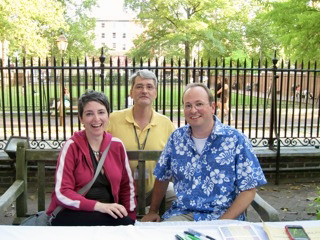Back in 2008, when I and three fellow SleuthSayers (Leigh, Rob, and Janice Law) were posting every week at a mystery bog called Criminal Brief, I wrote a column--a quiz, actually--about quotes from movies, called "Dialogue Is Like a Box of Chocolates." The idea was that fictional dialogue--you really don't know what you're gonna get--can sometimes outlast the stories themselves. It was a long list, and since there wasn't enough space to include some quotes that I really liked, I later came back and posted another one--and caused more trouble, yes, that's trouble, right here in River City.

For anyone--at least any movielover--who didn't see those two posts, here's a reprint of the second one. It includes fifty more quotes from the big screen, about half of them from mystery/crime/suspense movies. So if last night you dreamed you went to Manderley again, or if you woke up screaming STELLA or ADRIAN, or if you just picked the wrong week to stop sniffing glue, try your luck at this quiz. Go the distance, make my day, show me the money, use the Force, and do that voodoo that you do so well. If you answer them all, you're king of the world and I'm your number one fan. If you don't, well, no worries, mate, don't flee the interview--tomorrow is another day. And we'll aways have Paris. Any questions, anyone? Anyone?
Okay, here we go. Just remember: As long as you hit that wire with the connecting hook at precisely 88 mph the instant the lightning strikes the tower . . . everything'll be fine.
Answers are provided below--but no peeking. (That means you, Leigh . . .)
1. Tell them Inspector Callahan thinks there's a two-eleven in progress at the bank.
2. That plane's dusting crops where there ain't no crops.
3. If I don't come back, tell Mother I love her. / Your mother's dead, Llewelyn. / Well then, I'll tell her myself.
4. Anybody hear that? It's an impact tremor, that's what it is. I'm fairly alarmed here.
5. And that was the end of Grogan--the man who killed my father, raped and murdered my sister, burned my ranch, shot my dog . . . and stole my Bible.
6. You are in need of a soothsayer. / How did you know? / I'd be a fine soothsayer if I didn't.
7. This lighter has sixty-two different functions. Sixty-three if you wish to light a cigar.
8. Funny thing is, on the outside I was an honest man. I had to come to prison to be a crook.
9. I'd like to make her look a little more attractive. How far can you pull back? / How to you feel about Cleveland?
10. That's a Smith and Wesson--and you've had your six.
11. Don't open my pantry, Father. I found one of them in there and I locked him in.
12. What if there is no tomorrow? There wasn't one today.
13. The greatest trick the devil ever pulled was convincing the world he didn't exist.
14. You just shot an unarmed man! / He should've armed himself.
15. When you said you chased tornadoes, I thought that was just a metaphor.
16. Travis! Bring your gun!
17. That was the end of my religion period. I ain't sung a hymn for 104 years.
18. I'll get you, my pretty, and your little dog too.
19. I want Ness . . . dead. I want his family . . . dead. I want his house . . . burned to the ground.
20. Why would a man leave his apartment three times on a rainy night with a suitcase and come back three times?
21. Give me ten men like Clouseau and I could destroy the world.
22. Have you ever killed anyone? / Yeah, but they were all bad.
23. Raise your hands--and all of your flippers.
24. He's in a gunfight right now. He'll have to call you back.
25. I read where you were shot five times in the tabloids. / It's not true. He didn't come anywhere near my tabloids.
26. This was no boat accident.
27. On the day of my judgment, when I stand before God, and He asks me why did I kill one of his true miracles, what am I gonna say? That it was my job? My job?
28. You know, the one thing I can't figure out, are these girls real smart or real real lucky?
29. There's only one rule. Once you go in . . . you don't come out.
30. You can shoot all the blue jays you want, if you can hit 'em . . .
31. By the authority vested in me by Kaiser William the Second, I pronounce you man and wife. Proceed with the execution.
32. I don't want to get any messages saying that we're holding our position. We're not holding anything. Let the Hun do that.
33. Igor, help me with the bags. / Certainly. You take the blonde, I'll take the one in the turban. / I was talking about the luggage.
34. The next time I say something like let's go to Bolivia, let's go to Bolivia.
35. Every man on that transport died. Harry wasn't there to save them because you weren't there to save Harry.
36. We rob banks.
37. I just noticed that a fancy pilot like Slick over there doesn't have his picture on your wall. What do you have to do to get your picture up there anyway? / You have to die, sweetie.
38. Down your weapons put.
39. Ain't had no water since yesterday, Lord. Gettin' a little thirsty. Just thought I'd mention it. Amen.
40. That ditch is Boss Kean's ditch. And I told him that dirt in it's your dirt. What's your dirt doin' in his ditch?
41. The last miracle I did was the 1969 Mets. Before that, I think you have to go back to the Red Sea.
42. I'm always frank and earnest with women. In New York I'm Frank, in Chicago I'm Ernest.
43. I asked for a car, I got a computer. How's that for being born under a bad sign?
44. I'd like to report a truck driver who's been endangering my life.
45. Kane will be a dead man in half an hour and nobody's gonna do anything about it. And when he dies, this town dies too.
46. You know anything about a guy who goes around playing a harmonica?
47. It doesn't feel pity, or remorse, or fear. And it absolutely will not stop, ever, until you are dead.
48. I once asked this literary agent, what kind of writing paid the best. He said, "Ransom notes."
49. What is your nationality? / I'm a drunkard.
50. Is this coincidence, or are you back on the case? If so, goody goody.
ANSWERS:
1. Dirty Harry -- Clint Eastwood, speaking into a phone in the cafe across the street
2. North by Northwest -- Man standing in the road, to Cary Grant
3. No Country for Old Men -- Josh Brolin / his wife / Brolin
4. Jurassic Park -- Jeff Goldblum
5. Romancing the Stone -- Kathleen Turner, narrating
6. A Funny Thing Happened on the Way to the Forum -- Zero Mostel / Buster Keaton / Mostel
7. Our Man Flint -- James Coburn, to his boss Lee J. Cobb
8. The Shawshank Redemption -- Tim Robbins
9. Tootsie -- director / cameraman
10. Dr. No -- Sean Connery to inept assassin Anthony Dawson
11. Signs -- veterinarian M. Night Shyamalan to former priest Mel Gibson, in front of the farmhouse
12. Groundhog Day -- Bill Murray to Andie MacDowell
13. The Usual Suspects -- Kevin Spacey
14. Unforgiven -- bystander / Clint Eastwood
15. Twister -- Jami Gertz to Bill Paxton
16. Old Yeller -- Dorothy Maguire to son Tommy Kirk
17. Little Big Man -- Dustin Hoffman
18. The Wizard of Oz -- Margaret Hamilton to Judy Garland
19. The Untouchables -- Robert DeNiro to his assembled goons
20. Rear Window -- James Stewart to Grace Kelly
21. A Shot in the Dark -- Herbert Lom to his assistant
22. True Lies -- Jamie Lee Curtis / former governor Schwartzenegger
23. Men in Black -- agent Tommy Lee Jones to alien
24. Under Siege -- Erika Eleniak, on the satellite phone to the top brass
25. The Thin Man -- Myrna Loy / William Powell
26. Jaws -- Richard Dreyfuss, while examining shark victim's body
27. The Green Mile -- Tom Hanks to prisoner Michael Clarke Duncan
28. Thelma and Louise -- Stephen Tobolowski to fellow cop Harvey Keitel
29. Escape from New York -- narrator, describing Manhattan Federal Prison
30. (But it's a sin) To Kill a Mockingbird -- Gregory Peck to his children at the kitchen table
31. The African Queen -- Peter Bull to captives Bogie and Hepburn
32. Patton -- George C. Scott, during speech to troops
33. Young Frankenstein -- Gene Wilder / Marty Feldman / Wilder
34. Butch Cassidy and the Sundance Kid -- Newman to Redford
35. It's a Wonderful Life -- angel Henry Travers to James Stewart
36. Bonnie and Clyde -- Faye Dunaway
37. The Right Stuff -- customer in bar / Kim Stanley
38. The Empire Strikes Back -- Yoda to the opposition
39. The Ballad of Cable Hogue -- Jason Robards, while wandering in the desert
40. Cool Hand Luke -- prison guard Luke Askew to Paul Newman
41. Oh, God -- George Burns, replying to a lawyer's question in court
42. The Long Kiss Goodnight -- Samuel L. Jackson
43. Ferris Bueller's Day Off -- Matthew Broderick to audience
44. Duel -- a frazzled Dennis Weaver, into the phone
45. High Noon -- Katy Jurado to Lloyd Bridges, in her hotel room
46. Once Upon a Time in the West -- Jason Robards
47. The Terminator -- Michael Biehn to Linda Hamilton, referring to Ahhhhnold
48. Get Shorty -- Gene Hackman
49. Casablanca -- German officer / Humphrey Bogart, at a table in Rick's
50. Hannibal -- Anthony Hopkins to Julianne Moore, on the phone
And that's that. Again, I hope some of those brought back fond memories--if so, goody goody. If not, rest easy--I'm about quizzed out. (In other words, ain't gonna be no rematch. Don't want one.)
Anybody up for a toga party?












.jpg)















